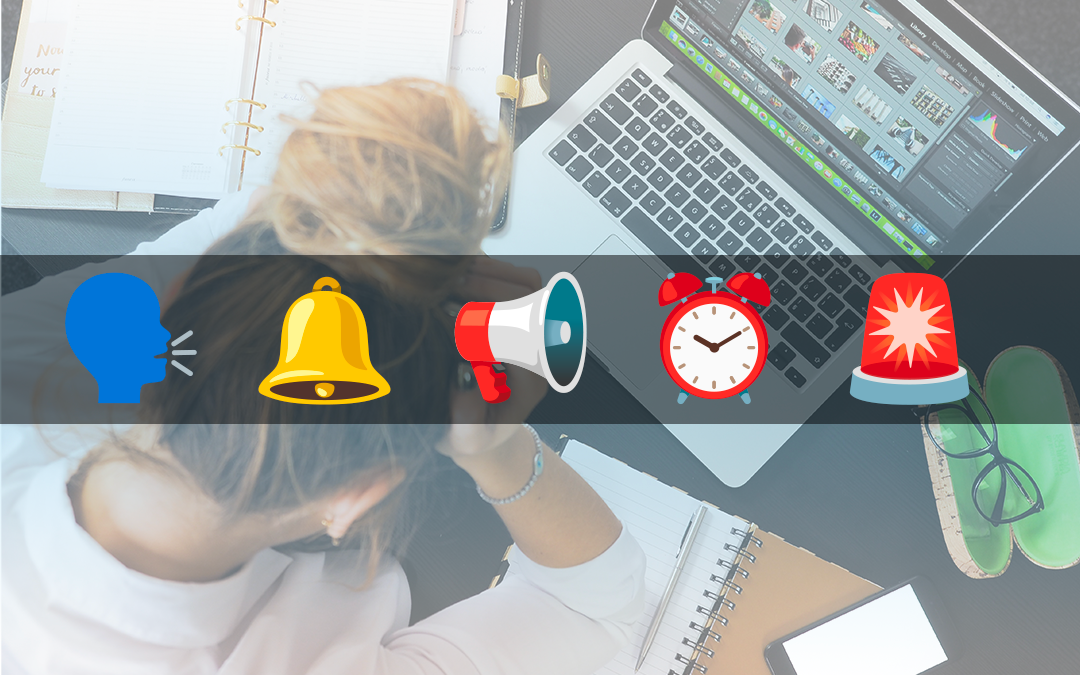In order to manage our daily tasks, we have to face interruptions, whether they are planned or not. For those of us with heavy workloads (who isn’t in this situation?) interruptions can have a significant negative impact on productivity and efficiency. It is therefore essential to know how to manage these interruptions in order to remain productive in completing tasks.
Let’s remember at this point that, contrary to what some might think, we are not multitaskers. We cannot do several activities that require attention and concentration at the same time. It is humanly impossible!
It is therefore important to know how to manage interruptions, because disconnecting and reconnecting to a task consumes time and energy. Being subject to multiple interruptions can lead to an ambivalent feeling of extreme fatigue at the end of the day with the sensation of having accomplished nothing.
The different types of interruptions in your work
They can be classified into two main categories:
- Internal interruptions
- External interruptions.
Internal interruptions are those that are self-generated, such as procrastination, distracting thoughts, or voluntary interruptions.
External interruptions, on the other hand, are caused by exogenous factors such as phone calls, alerts, e-mails, colleagues or customers.
How to manage interruptions?
Here are some tips and methods for handling interruptions and staying focused on priority tasks:
Plan for interruptions
As far as we can tell, it’s pretty effective to plan when you’re going to take breaks or answer emails. This can help you avoid unplanned interruptions that can hinder your workflow.
Using the Pomodoro method
The Pomodoro method is a time management technique that consists of working for a set period of time, followed by a break of a few minutes. This can help you focus on a specific task for a period of time, while planning breaks to handle interruptions and take a step back from the task at hand.
Prioritize tasks
Prioritizing tasks according to their importance and urgency sounds silly, but how many of us do it? By having a prioritized task list, you can focus on the most important and urgent tasks, which will minimize interruptions and maximize overall performance since the urgent and important will have been handled and not the other way around.
Avoiding voluntary interruptions
Some interruptions can be avoided by limiting intentional distractions such as social networking, video games or unnecessary conversations with colleagues. It takes a bit of discipline, rigor and willpower but the results are always up to the task.
Communicate with colleagues
If you work in a team, it can be helpful to communicate with your colleagues to let them know when you are busy and when you are available. You will not normally be disturbed during these times (except for emergencies of course). Most collaborative platforms like Microsoft Teams offer an option to indicate that you do not wish to be disturbed… use it and let your colleagues know that you count on them to respect it.
A good control of interruptions is essential for an efficient task management. By scheduling interruptions, using time management techniques and prioritizing tasks, you can minimize untimely interruptions and stay focused on priority tasks. Not only will your productivity improve, but you will be less tired and have a sense of accomplishment and a job well done.
